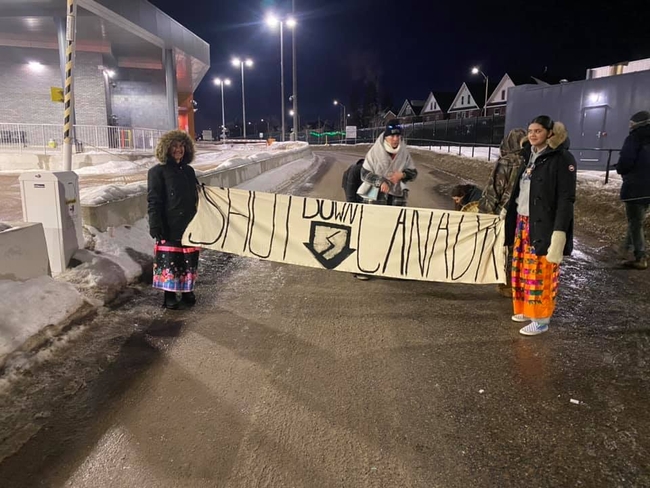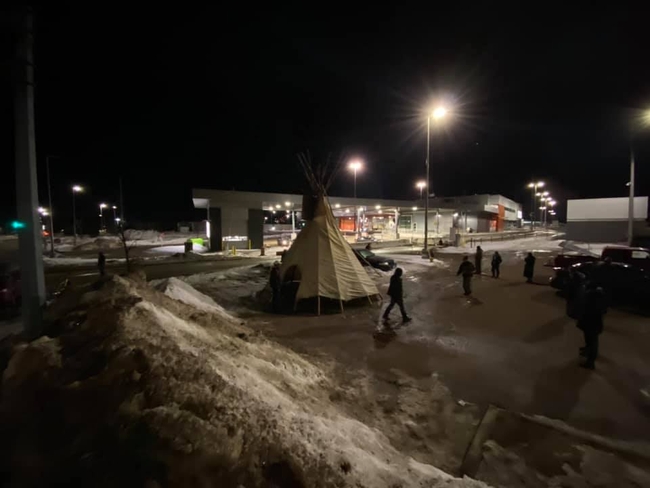Hereditary chiefs and ministers in second day of pipeline talks
The hereditary chiefs of the Wet'suwet'en are meeting for a second day with senior federal and provincial ministers as they try to break an impasse in a pipeline dispute that's sparked national protests and led to disruptions in the economy.
Federal Crown-Indigenous Relations Minister Carolyn Bennett and British Columbia Indigenous Relations Minister Scott Fraser began the long-sought talks Thursday afternoon before returning Friday to the meeting at the Wet'suwet'en office in Smithers, B.C.
The hereditary chiefs have described the meeting as a first step, noting that Prime Minister Justin Trudeau and B.C. Premier John Horgan declined invitations to discuss the Coastal GasLink project.
Bennett appeared to leave the door open Friday to a meeting involving the prime minister and premier in the future.
quote:
The Mohawk Council of Kahnawake in Quebec proposed Friday that its Peacekeepers head up a temporary Indigenous police force to patrol the Wet'suwet'en territory and allow the RCMP to withdraw entirely from the area.
Grand Chief Joseph Norton said his community's chief Peacekeeper has offered to work with other Indigenous police chiefs to gather the officers required.
quote:
Transport Minister Marc Garneau told a Commons committee on Thursday that Ottawa is trying to analyze the economic impacts to the economy of the disruptions, but said it is a complex calculation that could take up to six months to fully determine.
Garneau said the financial implications will likely be higher than most Canadians might think, as a total of $300 billion worth of goods moves by train every year in the country.
"What's important here to realize is, even if we start tomorrow and we had all the barricades down, it takes weeks, perhaps months to get back up to speed."













